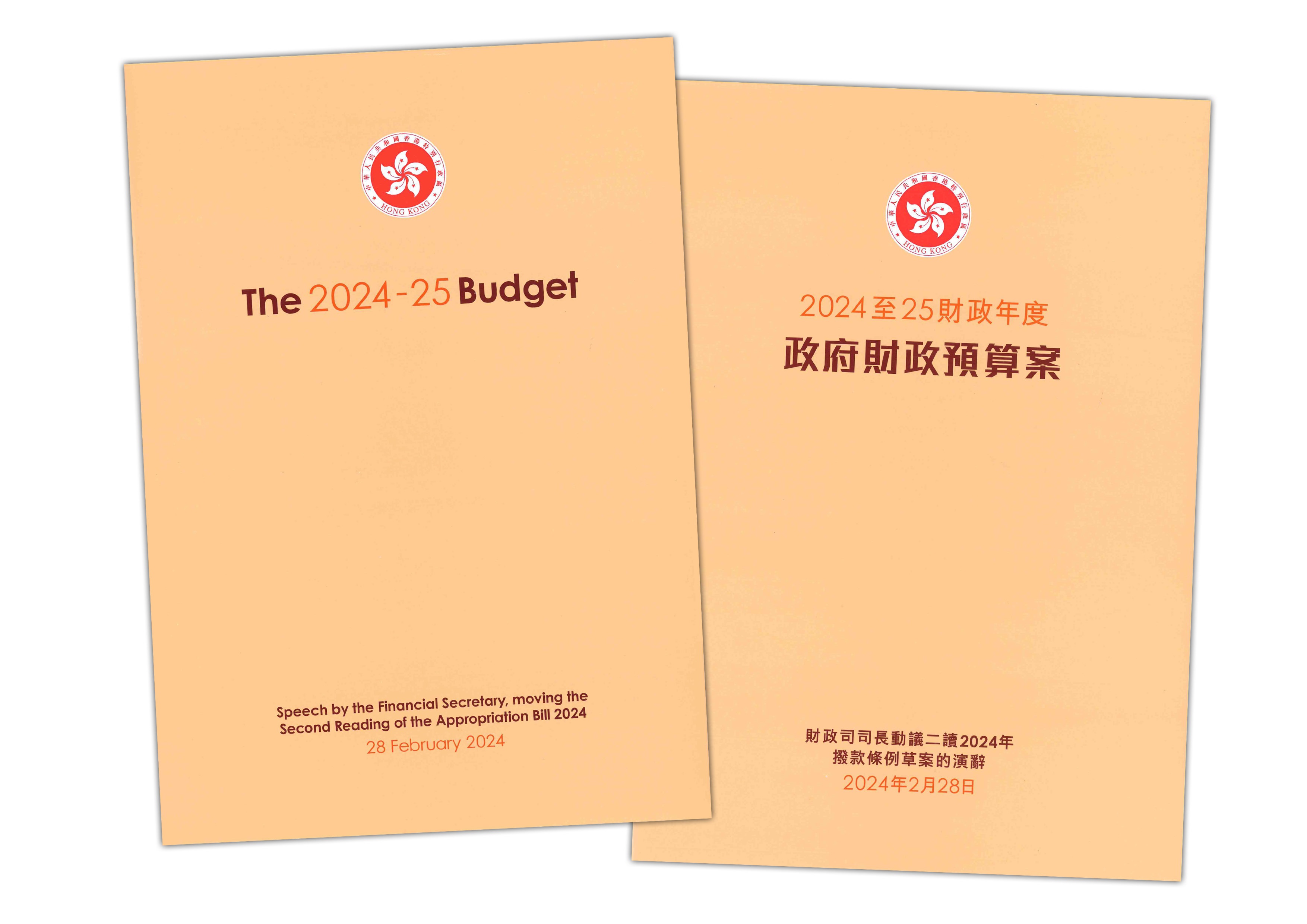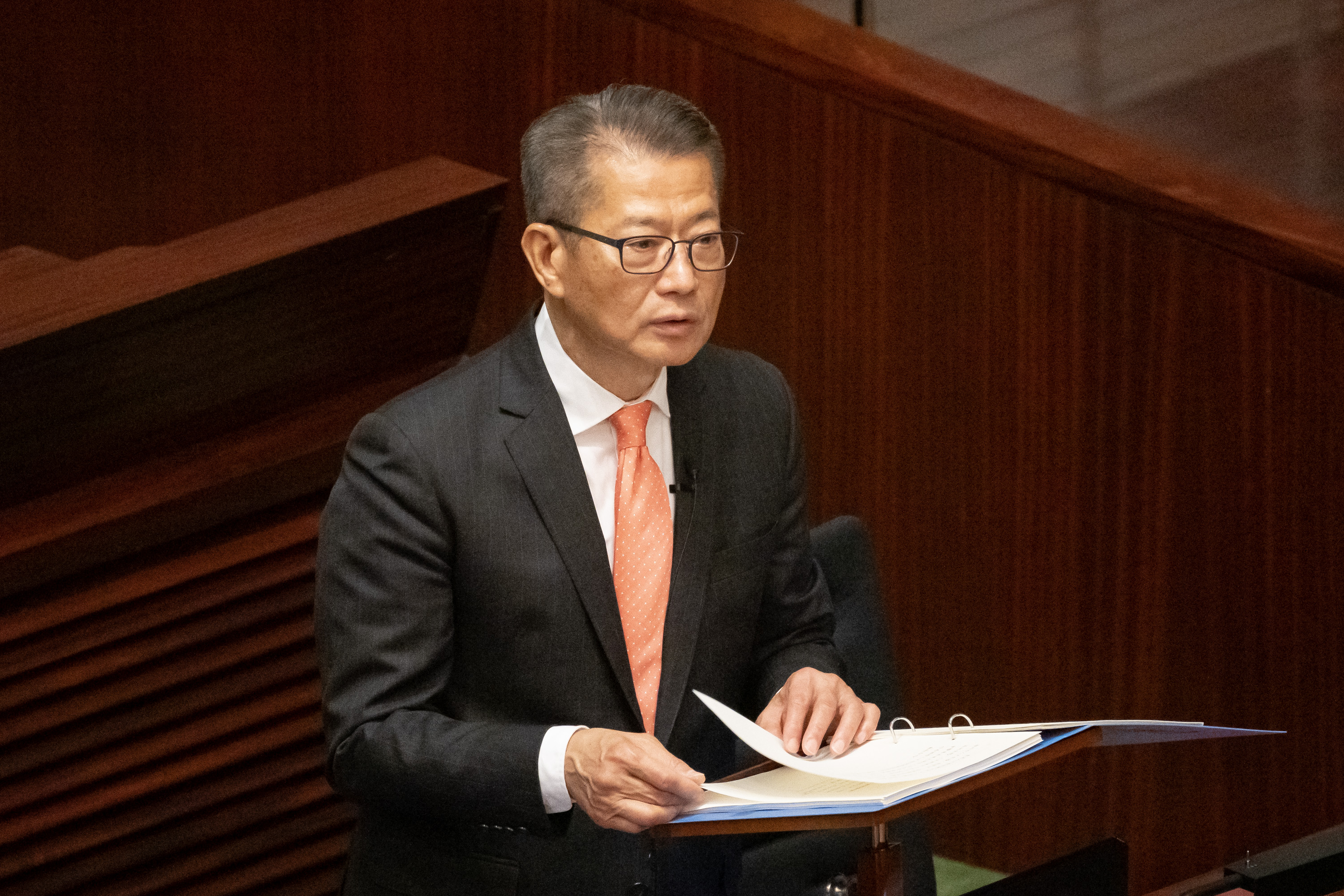HOW DOES THE LEGISLATIVE COUNCIL APPROVE PUBLIC EXPENDITURE
FS introduces into the Legislative Council, usually in February each year, the Appropriation Bill 1 and the Government’s Estimates of Expenditure for the scrutiny of the Legislative Council, and delivers the annual Budget Speech outlining the Government’s budgetary proposals at a Council meeting. The procedure, which involves the First and Second Readings of the Appropriation Bill, gives legal effect to the annual expenditure proposals contained in the Budget.

After the motion for the Second Reading of the Appropriation Bill has been moved, the debate thereon is adjourned. The expenditure proposals in the Budget, consolidated in the Estimates of Expenditure, are referred by the President of the Legislative Council (“the President”) to the Finance Committee (“FC”) of the Legislative Council for detailed examination.
FC consists of not less than 50 members. All Legislative Council Members except the President may join FC. A Member’s membership of FC lasts for the whole term of the Council. The Chairman and Deputy Chairman of FC are elected by and from among its members. FC is responsible for scrutinizing and approving the public expenditure proposals put forward by the Government. FC also scrutinizes the Estimates of Expenditure presented by FS to the Legislative Council.

FC holds special meetings to examine the Estimates of Expenditure to ensure that the Government is seeking a provision no more than is necessary for the execution of the approved policies.
Bureau Secretaries attend the FC special meetings with Controlling Officers under their portfolios, making brief presentation to highlight new developments and changes in their responsible policy areas, priorities for the year ahead and the resources requirement as set out in the Estimates of Expenditure. Prior to these special meetings, FC members raise written questions directly related to the Estimates of Expenditure, and follow up on the Government’s replies to their written questions at the special meetings. After the special meetings, the Chairman of FC will present a report to the Legislative Council.
Upon the resumption of debate on the Second Reading of the Appropriation Bill at a Council meeting, Members may speak on the financial and economic state of Hong Kong and the general principles of Government policy and administration as indicated by the Appropriation Bill and the Estimates of Expenditure. After Members have spoken, the Government will respond to Members’ speeches at the following Council meeting. Members will then vote on the Appropriation Bill at the Second Reading stage.
Afterwards, the Appropriation Bill is considered in committee of the whole Council, and an amendment to any head of expenditure to reduce the sum allotted thereto in respect of any item therein may be moved by any Member. An amendment which, in the opinion of the Chairman would increase the sum allotted shall only be moved by a designated public officer. After the Appropriation Bill has been reported from the committee of the whole Council, a motion that the report of the committee of the whole Council on the bill be adopted shall be moved. If the motion is agreed to, the Appropriation Bill will be ordered to be set down for Third Reading. After the motion for the Third Reading is agreed to, the Appropriation Bill is passed.
Upon the enactment of the Appropriation Ordinance, the Estimates of Expenditure are deemed to be approved. Any changes to the approved Estimates in the course of the financial year should be proposed by FS for the approval of FC.
Expenditure arising from any changes to the approved Estimates of Expenditure is charged to the relevant expenditure head. At the close of account for any financial year, if it is found that the expenditure charged to any head is in excess of the sum appropriated for that head by the Appropriation Ordinance for that year, the excess shall be included in a Supplementary Appropriation Bill. The Supplementary Appropriation Bill shall be introduced by FS or the Secretary for Financial Services and the Treasury into the Legislative Council as soon as practicable after the close of the financial year.
The revenue proposals made by FS in the Budget Speech are introduced in the form of separate bills or subsidiary legislation for consideration by the Legislative Council. To protect public revenue, the Chief Executive has the power to make public revenue protection orders to give immediate effect to those revenue proposals (e.g. increase in the tobacco duty) that need to come into effect on the Budget Day or before the enactment of the enabling legislation. Bills Committees and subcommittees may be formed by the Legislative Council as necessary to scrutinize the revenue proposals.

Normally, the budgetary process follows the following cycle:
(previous year)
(previous year)
(previous year)
- First and Second Reading of the Appropriation Bill
- Resumption of Second Reading debate and Third Reading of the Appropriation Bill
(following year)
(following year)
| 1 | An Appropriation Bill is a bill which contains the estimated financial requirements for expenditure on all the services of the Government of the Hong Kong Special Administrative Region for the current or succeeding financial year. |
| 2 | A financial year starts from 1 April and ends on 31 March of the following year. |



